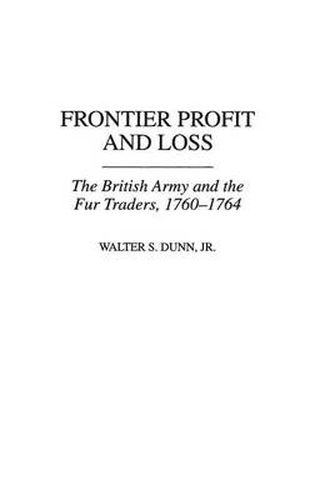Readings Newsletter
Become a Readings Member to make your shopping experience even easier.
Sign in or sign up for free!
You’re not far away from qualifying for FREE standard shipping within Australia
You’ve qualified for FREE standard shipping within Australia
The cart is loading…






By 1760, with the alleviation of the French threat to the western frontier, colonial fur traders headed west to reap the bounty of trade with the local tribes. However, when dissatisfied French interests conspired to instigate a revolt, the resulting Pontiac Uprising would force the British to rethink colonial trade policy. The fur traders, who had considered the British government their ally in exploiting the west, now saw the British allying themselves with the French and local tribes to keep the colonists out of the region. The prominent merchants who suffered financially and received no compensation would soon come to oppose British rule.
The fur trade and land speculation were two driving forces in the westward spread of merchant interests, but the promise of such riches would remain unfulfilled. Regulation of the trade would prove an enormous expense for the British; thus, to avoid the financial burden as well as to remove ill-treatment of the Native Americans as a cause for conflict, the Proclamation of 1763 prohibited settlement west of the mountains. The resulting dissatisfaction among the traders and speculators cost the British the support of colonial merchants. This book is an informative account of the interaction of economic, political, and social concerns on the western frontier.
$9.00 standard shipping within Australia
FREE standard shipping within Australia for orders over $100.00
Express & International shipping calculated at checkout
By 1760, with the alleviation of the French threat to the western frontier, colonial fur traders headed west to reap the bounty of trade with the local tribes. However, when dissatisfied French interests conspired to instigate a revolt, the resulting Pontiac Uprising would force the British to rethink colonial trade policy. The fur traders, who had considered the British government their ally in exploiting the west, now saw the British allying themselves with the French and local tribes to keep the colonists out of the region. The prominent merchants who suffered financially and received no compensation would soon come to oppose British rule.
The fur trade and land speculation were two driving forces in the westward spread of merchant interests, but the promise of such riches would remain unfulfilled. Regulation of the trade would prove an enormous expense for the British; thus, to avoid the financial burden as well as to remove ill-treatment of the Native Americans as a cause for conflict, the Proclamation of 1763 prohibited settlement west of the mountains. The resulting dissatisfaction among the traders and speculators cost the British the support of colonial merchants. This book is an informative account of the interaction of economic, political, and social concerns on the western frontier.